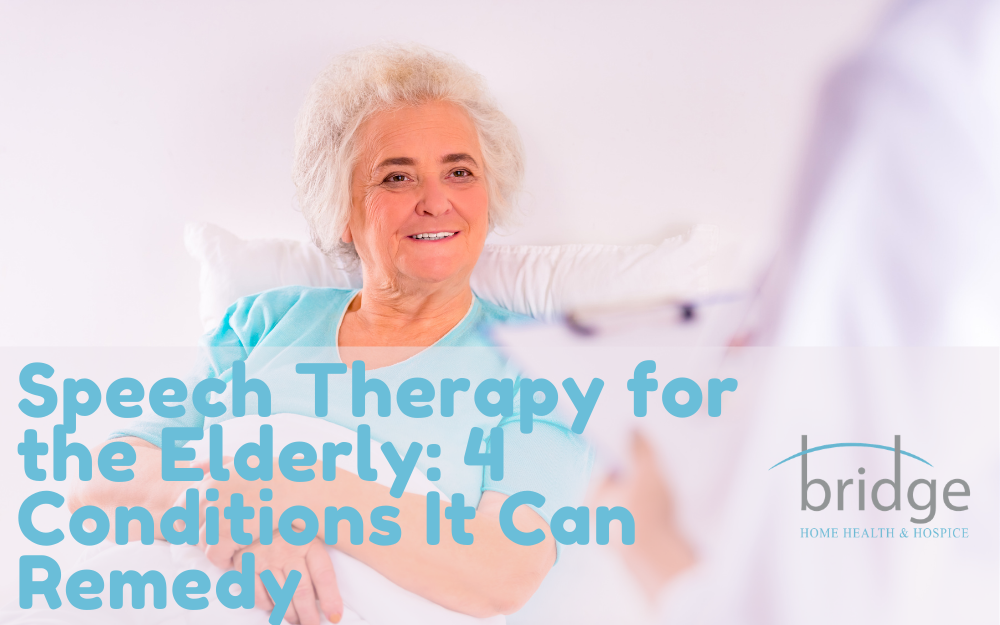Our elderly loved ones can develop different forms of physical and neurological conditions that affect their living conditions. This can be due to health deterioration or a recent surgical procedure that requires extensive recovery through speech exercises.
It’s challenging to bring elderly individuals to healthcare facilities, especially during this time that COVID-19 is a significant threat. Thankfully, speech therapists can aid you in your home to treat your seniors with the proper medical assistance they need.
Treating conditions through speech therapy
Speech-Language Pathologists are home health speech therapists who are instrumental in recovering patients with particular speech conditions. For some families, getting used to their elderly loved one’s speech impairments can seem like an easier path to take. However, these undiagnosed and untreated quirks can be uncomfortable to seniors.
In this article, we’ll share four speech conditions a speech-language pathologist can treat.
Dysarthria
A typical speech condition that results in slurred speech is the condition known as dysarthria. It’s a disorder that comes from muscle weakness, making it difficult for a person to articulate words properly. This is usually a symptom of neurological diseases like ALS.
Speech therapists can gradually cure this symptom by engaging with the patient in oral motor exercises. Together with compensatory speech strategies, a person with dysarthria can regain better functional speech intelligibility to communicate easily with their others.
Aphasia
Unlike dysarthria which comes from weakness in muscle control, aphasia involves more serious neurological damage. Patients diagnosed with aphasia have an increased difficulty in expressing and understanding language. This is primarily due to suffering several strokes that are affecting their normal brain functions.
Being stuck with aphasia can cause significant complications in performing day-to-day tasks, especially in communicating with other family members. Since it’s a complex condition, long-term strategies need to be in place to ensure a patient’s recovery. Speech therapists need to work with the patient and their guardian or caregiver to develop alternative means of communication in the meantime. This can include picture books for visual communication or even advanced communication devices.
Dysphagia
Patients that recently underwent head and neck cancer surgery are expected to develop difficulty swallowing after the procedure. Since the process of swallowing is broken down into three phases, a patient can have complications with their oral, pharyngeal swallow, or esophageal stage.
Maintaining a condition of dysphagia can be dangerous, especially for patients with respiratory diseases. Since digestive tracts and breathing systems are close to each other, there’s a high chance for discomfort to lead to major medical conditions. It’s a speech-language pathologist’s job to do more than just oral exercises to promote recovery. They may also recommend dietary changes.
Dementia
Although dementia closely affects a person’s memory, it can also disrupt a person’s cognitive processes. Early stages of dementia will require a speech therapist to provide resources and memory aids to assist a patient’s ability to act independently. This is achieved through learning memory strategies for better memory recall, especially for taking medication. For a person in late-stage dementia, the speech therapist needs to coordinate with the patient’s family. They will learn the best ways to keep their senior loved ones calm and at peace with their environments to prevent fear and anxiety.
Conclusion
Taking care of your senior relatives will put you in a challenging position of addressing their ever-growing needs. If you want to make them comfortable during this difficult time of their life, it’s essential to know when to ask for help. This is why you must never shy away from receiving professional services from healthcare experts.
At Bridge Home Health and Hospice, our healthcare experts provide diverse senior health services in California that cater to your loved one’s needs. We’ve developed specialized programs that utilize state-of-the-art technology to ensure our clients’ highest quality of care. See if our service packages will fit your elderly loved ones’ preferences by requesting more information at (800) 476-0043.

